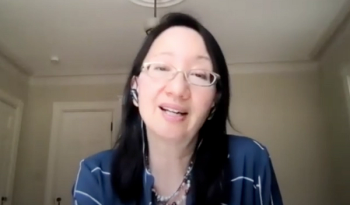
Look forward to even more consolidation
National Reports — The industry probably can look forward to further consolidation, as managed health insurers position themselves to better serve Medicare participants in the prescription drug benefit program scheduled to begin in January, and move to compete against other giant players in the industry, according to industry experts.
NATIONAL REPORTS - The industry probably can look forward to further consolidation, as managed health insurers position themselves to better serve Medicare participants in the prescription drug benefit program scheduled to begin in January, and move to compete against other giant players in the industry, according to industry experts.
A combined UnitedHealth and PacifiCare forms the second largest healthcare entity in the nation, behind only mega-insurer WellPoint Health Networks Inc.
"With this merger, two leading healthcare companies that focus on different parts of the country will join forces to provide consumers with broader access to quality healthcare services that are more affordable and easy to use," Mark Lindsay, spokesperson for UnitedHealth Group, tells MANAGED HEALTHCARE EXECUTIVE.
UnitedHealth Group sees this business combination creating opportunities in five primary areas:
A WIN-WIN SITUATION
"Proponents of the merger argue that greater leverage with suppliers and providers will help hold down rising costs, and larger networks will offer patients more choices," according to Catherine M. Katilius, an associate attorney with Epstein Becker & Green's Health Care and Life Sciences Practice in Chicago.
According to Katilius, the acquisition is a win-win for both companies. "PacifiCare benefits from access to UnitedHealth's national network of providers, and a stronger buyer position to enable it to purchase prescription drugs and other products at reduced costs," she says.
"UnitedHealth also will assume $1.1 billion of PacifiCare's debt," Katilius says. "UnitedHealth would benefit from a larger share of Medicare participants-a potentially strong growth market in which it lacked a significant presence prior to the acquisition. PacifiCare is second only to Kaiser nationally as a private administrator of Medicare health plans. Combined, the companies will enjoy a significantly increased market share nationally, and particularly as a provider of Medicare services."
MEDICARE MATTERS
Under the combined companies, Medicare recipients are likely to have access to a larger network of providers, Katilius says.
"However, if continued market consolidation is perceived as creating a less-competitive environment among health plans, the government will face a real challenge as it attempts to reign in escalating costs for Medicare-funded healthcare and drug benefits," she says.
The transaction is expected to close in late 2005 or early 2006.
Industry watchers believe that the deal will be closely scrutinized-given California Insurance Commissioner John Garamendi's delay in approving the WellPoint-Anthem merger until after the health plans agreed to contribute $265 million toward various health projects that serve the state's low-income residents.
"A similar commitment could be extracted before approval of this acquisition is won," Katilius says.
Newsletter
Get the latest industry news, event updates, and more from Managed healthcare Executive.























